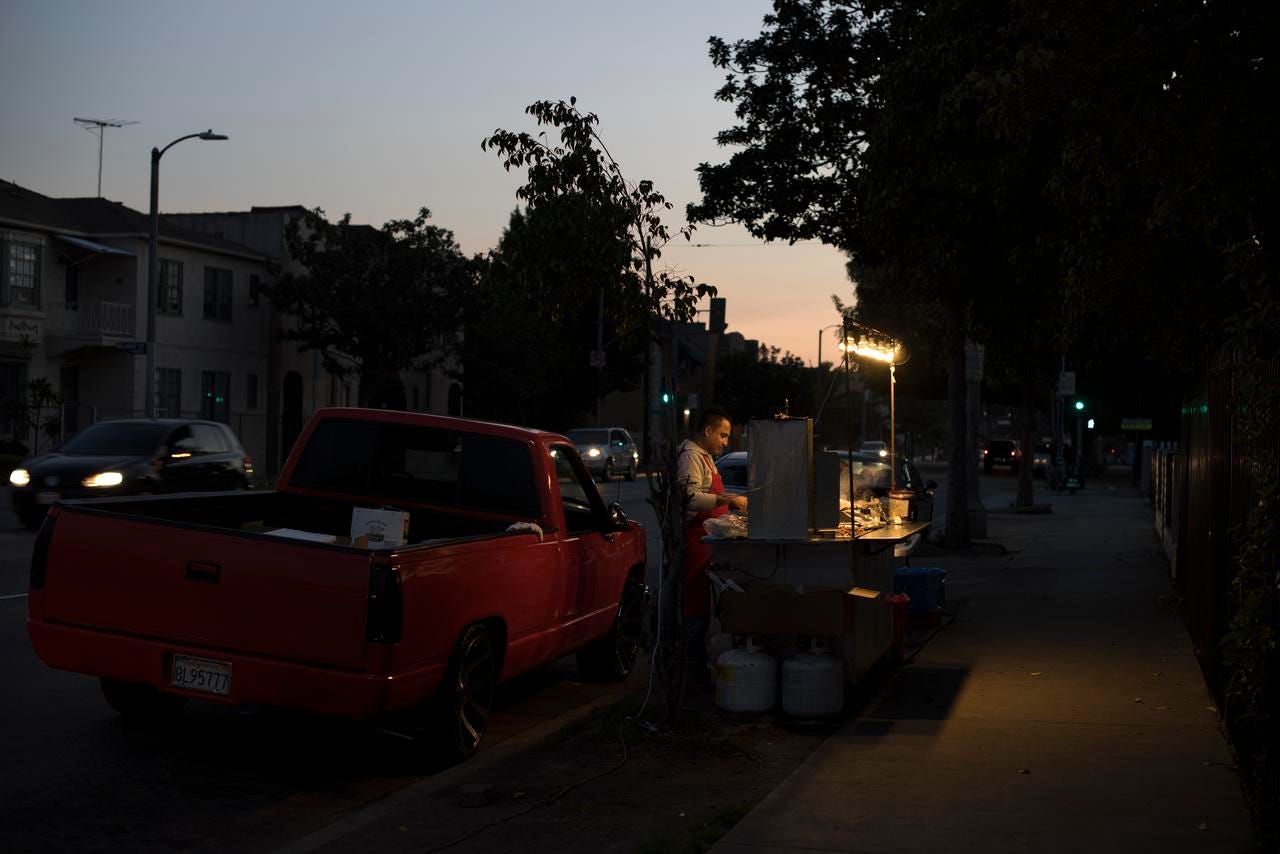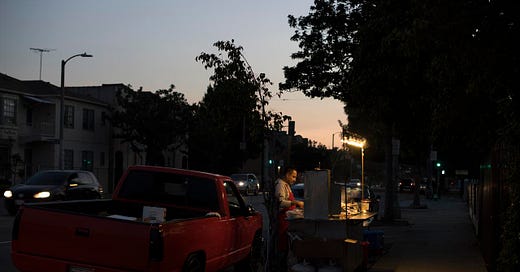Fear and Vending in L.A.
Some fifty thousand Los Angelenos make their living slinging everything from watches to watermelons, yet are deemed criminals. One activist is determined to legalize their trade.

Photos by Isadora Kosofsky
On a muggy July evening in South Los Angeles, Janet Favela stands at the front of a dimly lit room. A loose black tee, translucent with stripes, hangs just below her curvy hips. As she fiddles with her laptop, Favela appears serious, hunched over a glowing screen. But then she looks up, scanning the dozen faces quietly awaiting her instructions, and smiles from behind her dark-rimmed glasses, soft dark curls and creamy olive skin. Suddenly, Favela’s rigidity seems to melt away like that pesky last patch of ice in early spring.
At six p.m., the humidity is oppressive. South Main Street is lined with litter amidst the boxy buildings, their windows barred by metal in this low-income neighborhood. Inside the offices of a community-based initiative called TRUST South LA, half a dozen bicycles linger in a far corner. The floor is dotted with a rainbow of tiny dried pieces of gum. Two rickety fans provide the only reprieve for the dozen men and women braving the heat…
Keep reading with a 7-day free trial
Subscribe to Narratively to keep reading this post and get 7 days of free access to the full post archives.



